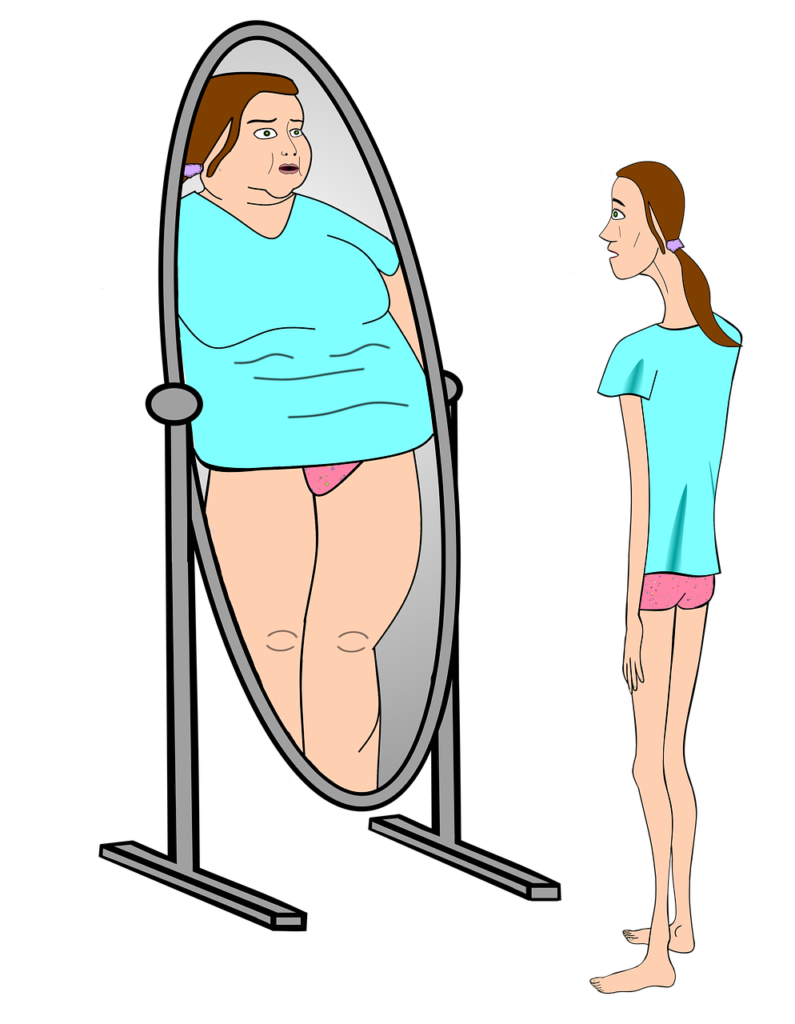What is Anorexia Nervosa?
Anorexia nervosa is a serious mental health disorder characterized by an intense fear of gaining weight and a distorted body image, leading to restricted food intake and significant weight loss. Individuals with anorexia often have a relentless pursuit of thinness, engage in extreme dieting or exercise, and may exhibit obsessive behaviors related to food and body image.
Types of Anorexia Nervosa
Anorexia nervosa can be classified into two main subtypes:
- Restricting Type: Individuals with this subtype primarily restrict their food intake and may engage in excessive exercise to control their weight.
- Binge-Eating/Purging Type: Individuals with this subtype may engage in episodes of binge eating, followed by behaviors such as self-induced vomiting, misuse of laxatives or diuretics, or excessive exercise to compensate for the perceived calorie intake.
Symptoms of Anorexia Nervosa
- Extreme weight loss
- Intense fear of gaining weight or becoming fat
- Distorted body image, seeing oneself as overweight despite being underweight
- Preoccupation with food, calories, dieting, and weight
- Avoidance of social gatherings involving food
- Obsessive exercising
- Development of ritualistic eating habits or food rituals
- Physical signs such as thinning hair, brittle nails, dry skin, and cold intolerance
- Menstrual irregularities or loss of menstrual periods in females
- Fatigue, weakness, dizziness, or fainting
Causes of Anorexia Nervosa
The exact cause of anorexia nervosa is unknown, but it is believed to involve a combination of genetic, biological, psychological, and environmental factors:
- Genetics: Individuals with a family history of eating disorders or mental health conditions may be at increased risk.
- Psychological factors: Low self-esteem, perfectionism, anxiety, depression, or trauma may contribute to the development of anorexia nervosa.
- Sociocultural factors: Societal pressures to be thin, idealization of thinness in the media, and cultural attitudes toward body image and beauty may play a role.
- Life transitions: Stressful life events, such as puberty, starting college, or changes in relationships, may trigger the onset of anorexia nervosa.
Risk Factors for Anorexia Nervosa
- Gender: Anorexia nervosa is more common in females, but males can also be affected.
- Age: Onset typically occurs during adolescence or young adulthood, but anorexia nervosa can develop at any age.
- Family history: Having a family history of eating disorders or mental health conditions increases the risk.
- Perfectionism: Individuals with perfectionistic tendencies or high levels of self-criticism may be at higher risk.
- Dieting or weight-focused sports: Participation in sports or activities that emphasize weight, body image, or appearance may increase the risk.
Diagnosis of Anorexia Nervosa
Diagnosing anorexia nervosa involves a comprehensive assessment that may include:
- Medical history and physical examination
- Psychiatric evaluation, including assessment of eating behaviors, body image, and psychological symptoms
- Laboratory tests to assess nutritional status and rule out medical complications
- Psychological tests and questionnaires to evaluate cognitive and emotional functioning
Pharmacological Treatment of Anorexia Nervosa
While there are no medications specifically approved for the treatment of anorexia nervosa, medications may be used to address co-occurring symptoms such as depression, anxiety, or obsessive-compulsive disorder (OCD). These may include:
- Antidepressants: Selective serotonin reuptake inhibitors (SSRIs) or other antidepressants may help alleviate symptoms of depression and anxiety.
- Antipsychotics: Atypical antipsychotic medications may be used to target symptoms such as obsessive thoughts or compulsive behaviors.
Non-Pharmacological Treatment of Anorexia Nervosa
- Psychotherapy: Cognitive-behavioral therapy (CBT), family-based therapy (FBT), dialectical behavior therapy (DBT), and other forms of psychotherapy are commonly used to address the underlying psychological factors contributing to anorexia nervosa.
- Nutritional counseling: Registered dietitians or nutritionists can provide education, support, and guidance to help individuals establish healthy eating patterns, restore weight, and improve nutritional status.
- Medical monitoring: Regular medical monitoring by healthcare professionals is essential to assess physical health, monitor weight restoration, address medical complications, and coordinate multidisciplinary care.
- Support groups: Participating in support groups or peer-led programs can provide encouragement, validation, and a sense of community for individuals and families affected by anorexia nervosa.
Conclusion
Anorexia nervosa is a complex and serious mental health disorder characterized by restrictive eating patterns, distorted body image, and intense fear of gaining weight. It can have profound physical, psychological, and social consequences and requires comprehensive treatment that addresses both the physical and psychological aspects of the disorder. Early intervention, multidisciplinary care, and ongoing support are essential for promoting recovery and improving long-term outcomes in individuals with anorexia nervosa. If you or someone you know is struggling with symptoms of anorexia nervosa, it is important to seek help from qualified healthcare professionals for evaluation, diagnosis, and treatment.




